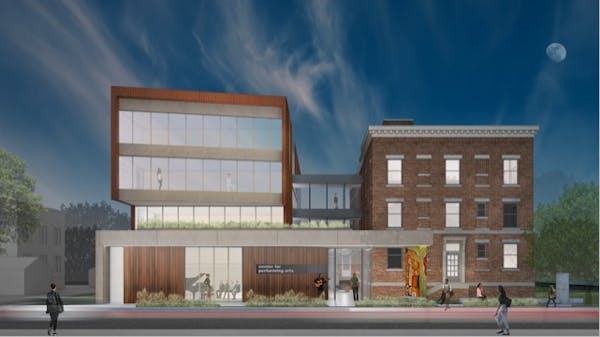Despite the COVID-19 pandemic, the rental market in the Twin Cities remained relatively healthy during the first half of the year, but with thousands of apartments expected to hit the market this year and no plan to replace expanded jobless benefits, vacancies are expected to increase and rents soften by end of the year.
A quarterly report from Marquette Advisors says that by the end of June the average vacancy rate across the metro was 3.4%, about a percentage point higher than last year and up slightly from the previous quarter.
The average rent price across the metro was $1,311, 4.5% higher than a year ago. In Minneapolis, however, rents increased only slightly and declined a bit in St. Paul.
"Every submarket is different," said Twin Cities developer Kelly Doran. "If you want to live in downtown Minneapolis you're going to get a pretty good deal, but that's not true everywhere."
Demand varied dramatically across the metro. Of the 54 submarkets tracked by the group, six reported a vacancy rate of greater than 5%, which is considered a balanced market. Those areas include both downtown Minneapolis and St. Paul, which had the highest vacancy rates in the metro during the quarter, and Maple Grove, Lakeville, Richfield and Robbinsdale.
With no end in sight for the recovery and expanded unemployment benefits now expired, the impact of the coronavirus on the rental market is becoming "more pronounced" with upward pressure on vacancy rates and downward pressure on rents, Brent Wittenberg, Marquette vice president, said in the report.
There is an expectation of a more significant decline in demand and an increase in vacancies due to COVID, he said, but "vacancy remains artificially low due to the eviction moratorium and federal unemployment subsidies, which have reduced the number of apartment moveouts."
As those subsidies expire and about 6,000 rentals are completed during the second half of the year, Wittenberg expects a more significant increase in vacancy in the months ahead.
During the first half of the year 3,117 rentals opened, and the market absorbed about 1,142 total units compared with 3,690 units during the same time last year.
As housing advocates fret about the prospect of a large wave of evictions, property managers in some areas are bracing for an increase in empty units. Some are offering rent concessions, or inducements to rent, including one or two free months' rent with at least a yearlong lease in some buildings. Those concessions varied by location and unit type.
Doran said most of his suburban projects and those on the periphery of downtown Minneapolis are leasing quickly. He says a recent increase in crime in downtown Minneapolis is forcing some renters to consider other neighborhoods. At the Expo project, a high-rise luxury rental building across the Mississippi River from downtown Minneapolis, the building is only half completed but is about 25% leased.
Amy Johnson, director of marketing and leasing for Roers Cos. and Core Living, said the company has not experienced a negative impact in leasing velocity, rent growth or vacancy. Maven, a 137-unit rental building in Burnsville, is 95% occupied three months after opening.
"We've been very fortunate with our product type and community locations being on the outskirts of Minneapolis or in the suburbs," she said. "Demand has remained steady and we have not offered increased concessions."
The company has several projects that are expected to break ground this fall including 208 units in Lakeville, 260 units in Fridley and 188 units in West St. Paul. Beyond Apartments, a 255-unit building in Woodbury, is expected to open in fall 2021.
A survey of Twin Cities renters released this week found that the vast majority have been keeping up with their rents.
The survey by the Minnesota Multi Housing Association (MHA) of more than 30,000 market-rate rentals in the Twin Cities metro area shows that as of Aug. 6, rents had been paid in 94% of the newest, highest-quality buildings (Class A); 93% in older, less-expensive buildings (Class B) and 88% in buildings that are even older and in less desirable locations (Class C). Those figures were similar to surveys conducted in the previous two months and are only slightly below the same time last year.
In a statement, MHA president and CEO Cecil Smith said there's no need for panic about an eviction wave and said it's time to wind down the eviction moratorium to protect the stability of the market. "Our members are working with residents who need assistance to help them," he said. "Including getting them access to county services and the rental assistance provided by the Coronavirus Relief Fund."
New Minnesota GOP leaders seek peace with party's anti-establishment wing

Who is Republican Lisa Demuth, Minnesota's first House speaker of color?

Minnesota House GOP, Secretary of State Steve Simon return to Supreme Court
Supreme Court sides with DFL and Simon, says 68 House members needed for floor action

